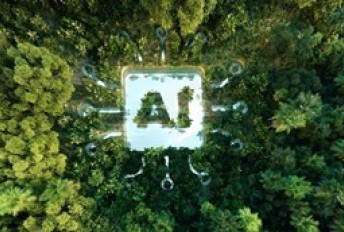
Posted on September 17, 2025
Supply chains are the backbone of global commerce, ensuring that goods flow seamlessly from manufacturers to consumers. Yet the COVID-19 pandemic exposed the fragility of these systems, especially in South Africa’s fast-moving consumer goods (FMCG) sector. Disruptions from border closures,...

Posted on August 27, 2025
However, it is important for it to be monitored, as it can be used for propaganda, manipulation and advertising (such as click bait). With the announcement in January this year that Meta is ending its fact-checking programme on Facebook, Instagram and Threads, the challenge has escalated.

Posted on August 07, 2025
Our quest for knowledge has led to an alarming insight: it is harming the environment. According to the World Economic Forum, since the release of ChatGPT in November 2022, investment in artificial intelligence (AI) has grown eight-fold. This investment has seen the increase in the physical...

Posted on July 02, 2025
The integration of artificial intelligence (AI) into legal systems is transforming the practice of law, offering unprecedented efficiency, accessibility and innovation. However, the recent case Mavundla v MEC: Department of Co-Operative Government and Traditional Affairs KwaZulu-Natal and Others...

Posted on June 05, 2025
Generative artificial intelligence (GenAI) is changing how we work, play and relax. Whether you use ChatGPT to write a brief, Midjourney to generate visuals or MuseNet to create unique soundtracks, these technologies have opened up opportunities for richer content.

Posted on May 29, 2025
A single query to ChatGPT uses as much electricity as burning a light bulb for about 20 minutes. Multiply that by the millions of requests that this artificial intelligence (AI) chatbot receives each day, and the environmental impact is ominous.
Copyright © University of Pretoria 2025. All rights reserved.
Get Social With Us
Download the UP Mobile App